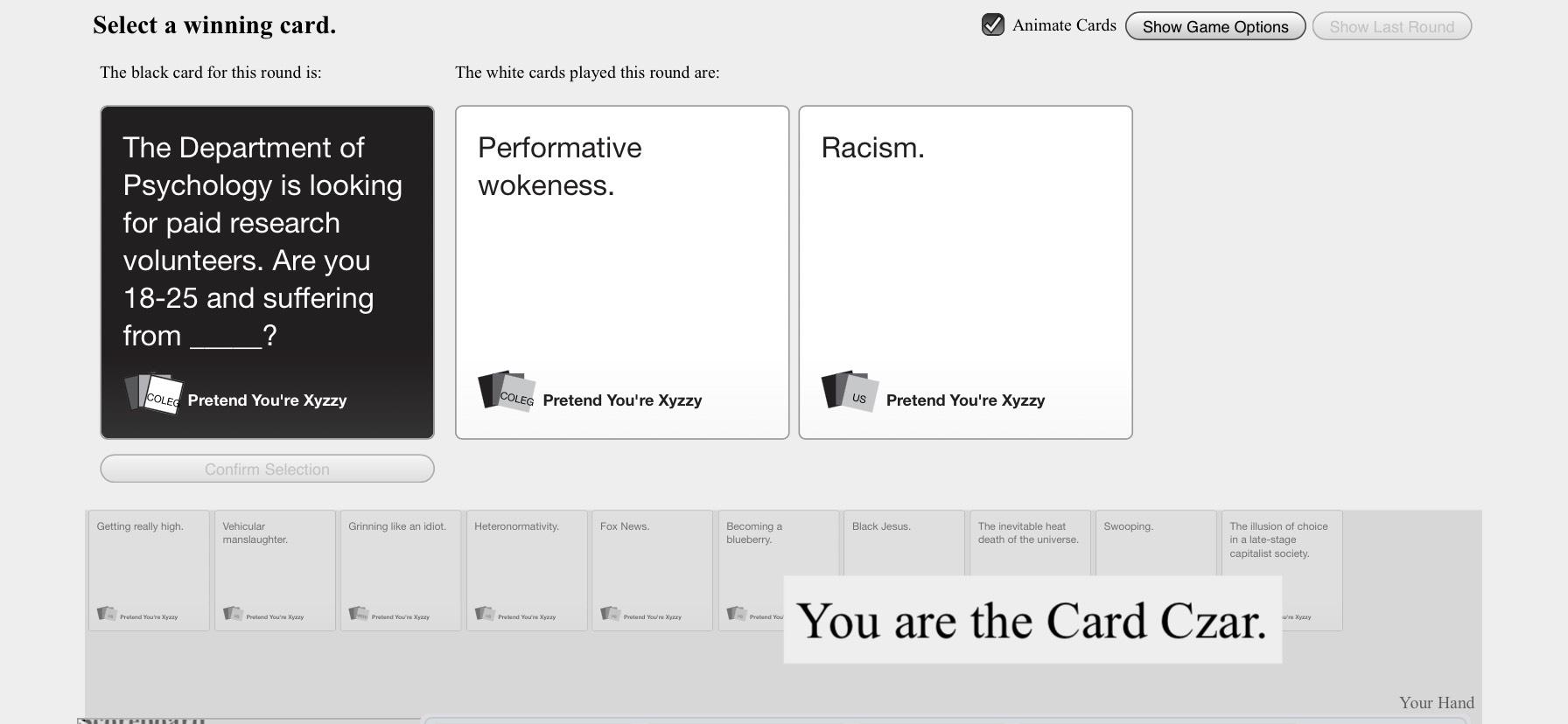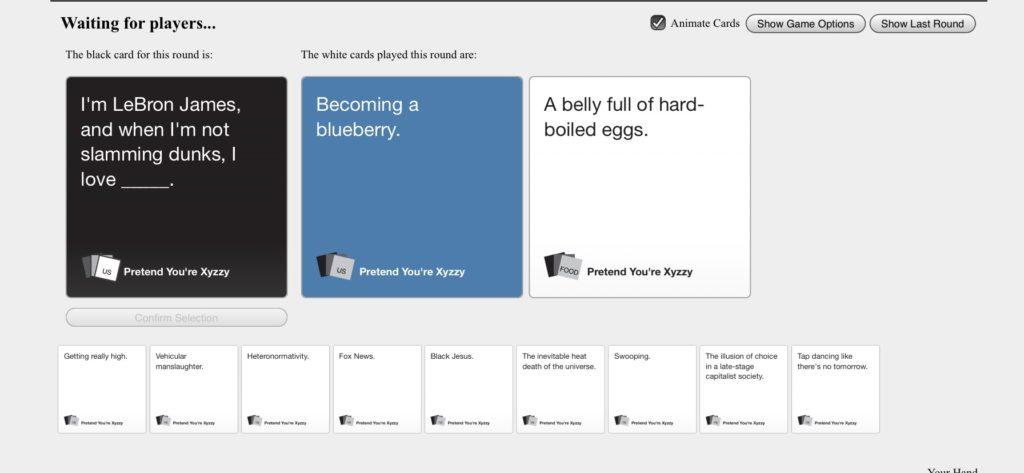Overview – Cards Against Humanity
Cards Against Humanity, published by Cards Against Humanity LLC and first released May 2011, is a three or more player party card game where players use cards to fill in sentences, aiming to be the most witty, funny, offensive, or inappropriate of all. Because cards can be risqué and inappropriate, it is aimed at those ages 17 and over, specifically those who have awkward personalities and lackluster social skills and derive fun from dark humor.
In the game, the Card Czar reveals a fill-in-the-blank sentence card that other players use cards from their hand to fill in, then judges who has made the best completed sentence.

Players choose hilarious cards to complete the black sentence card.

The Card Czar chooses their favorite completion (highlighted in blue).
Formal Elements
Cards Against Humanity is a player vs player game where players compete against each other to construct the best sentence. The player with the most liked sentences wins more points, but the game itself is fairly casual and can be played practically endlessly if players desire. Only phrase cards and fill-in-the-blank sentence or question cards are needed. The premise and context of the game includes constructing the most vulgar, hilarious, or witty sentences — the specific content depends on which card pack you have, but it may cover topics such as politics, sex, crime, and memes.
Compared to Other Games
Unlike other judging games like Apples to Apples and skribbl.io, Cards Against Humanity is highly offensive, straightforward, and blunt (in content). And unlike typical card games, there is no secrecy, deceit, or extreme strategizing involved. Unlike skribbl.io, no skill is needed to be good at the game — just creativity and luck. It’s not a wholesome game (certainly not family-friendly), and instead employs dark humor to its advantage. In this way, Cards Against Humanity is quite refreshing in allowing players to be as offensive as they would like.
However, it is also very similar to other games in that the final winner of the game is decided by the opinion of a single judge, who doubles as another player in other rounds. Players find “similar” phrases to fill in the blank, somewhat similar to mechanics in Apples to Apples. The biggest strength of this game mechanic is that Cards Against Humanity is incredibly simple and easy to learn.
Types of Fun
I played an online clone of Cards Against Humanity with a group of friends, and we had a lot of fun making silly sentences and discussing why we felt one sentences was superior over another. In a way, players must evaluate how to appeal to a specific judge, making it a social “fellowship” style game. It is also a game that focuses on allowing players express themselves creatively.
Vulnerability
This game deals with some fairly offensive and sensitive topics, such as sex and politics, so players need to be much more vulnerable than the typical casual party card games. For example, I personally was not comfortable playing this game when I was much younger as it does require players to be open about being able to talk about these topics. At the same time, this game does not require players to talk about themselves, so the vulnerability is only limited to what one is willing to talk about in terms of topic, not about personal life.
Where it Succeeds and Fails, and What I Would Change
This game can be absolutely hilarious — cards complete sentences in hilariously unexpected ways that still make sense. Furthermore, this game excels in allowing each player to be creative in their own ways — whether they want to be the wittiest to make others laugh, or most inappropriate to gross people out, this game embraces players making their own goals and deriving their own enjoyment. It’s a great game to allow you to indulge in your secret desires to be vulgar or explore the depths of dark humor.
However, the specific topics can be uncomfortable to talk about, so it has a very limited target audience. While this is ok, I personally would love a version of the game that is more PG. Certain audiences don’t find certain topics as funny as others. For example, I don’t enjoy the cards about politics as much as the ones about manslaughter and memes, so allowing players to customize their decks by topics they prefer is ideal.


